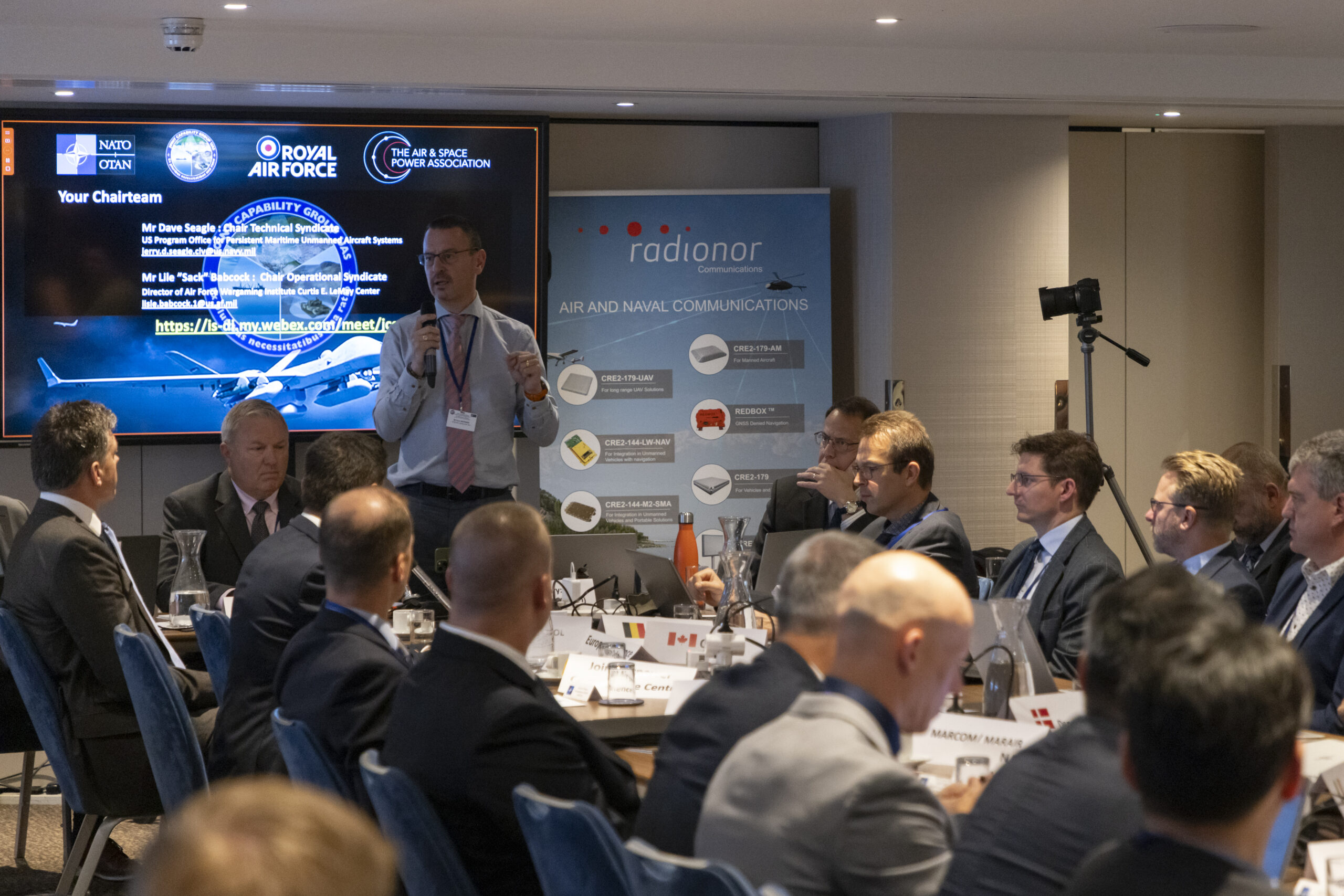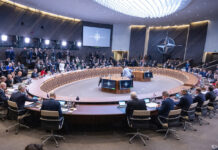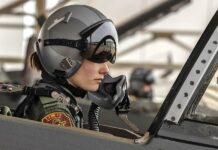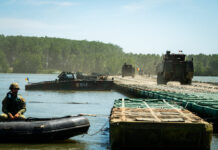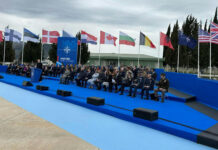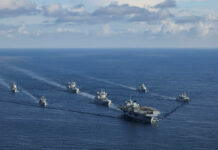Hosted by the Royal Air Force (RAF) in London from 25 to 27 September 2023 for its autumn meeting, the NATO Joint Capability Group for Unmanned Aircraft Systems (JCGUAS) has finalised the world’s first ‘sense and avoid’ standard for remotely piloted air vehicles.
The JCGUAS’ autumn meeting also produced a few firsts: it was the first JCGUAS plenary session where industry partners were integrated within the main plenary discussions; and it was also the first meeting where NATO partner South Korea attended in person, reflecting broader global interest in the group’s aims.
The conference was attended by over 150 delegates representing air, land, maritime, procurement, technology, and operational experts within and beyond the NATO alliance.
The JCGUAS seeks to enhance NATO UAS coherence, interoperability, and capability collaboration and reports to national armament directors and the NATO Military Committee. With a regular attendance of over 100 personnel, the JCGUAS’ focus is standardisation of UASs within the alliance, as well as incorporating new and emerging technologies, including autonomy and artificial intelligence.
Wing Commander Richard Long, head of international strategy for the RAF’s Protector RG Mk1 fleet of unmanned aerial vehicles (the UK designation for its General Atomics Aeronautical Systems Inc MQ-9Bs), was quoted in an RAF press release as saying, “I’m delighted to be hosting the JCGUAS meeting here in London. It is important for the RAF and NATO to have forums such as this to discuss the current and future role of uncrewed aircraft systems and agree standards for their use across NATO.”
Wing Cdr Long also heads the MQ-9B International Cooperative Programme, which is a community of nations that have procured, are in the process of procuring or are actively considering procurement of the MQ-9B.
Ross McKenzie, NATO International Staff-UAS Officer and part of the JCGUAS leadership team, was quoted as saying, “Our autumn meeting in London delivered an important NATO-wide standard on ‘sense and avoid’ as well as providing a forum in which industry, government, academia, and military were brought together to enhance development of related standards. Augmenting established NATO uncrewed aircraft systems airworthiness standards, with the new ‘sense and avoid’ standard, facilitates allied adoption of remotely piloted aircraft systems, assisting allies’ ability to prove that these aircraft are airworthy, safe, reliable, and predictable.”
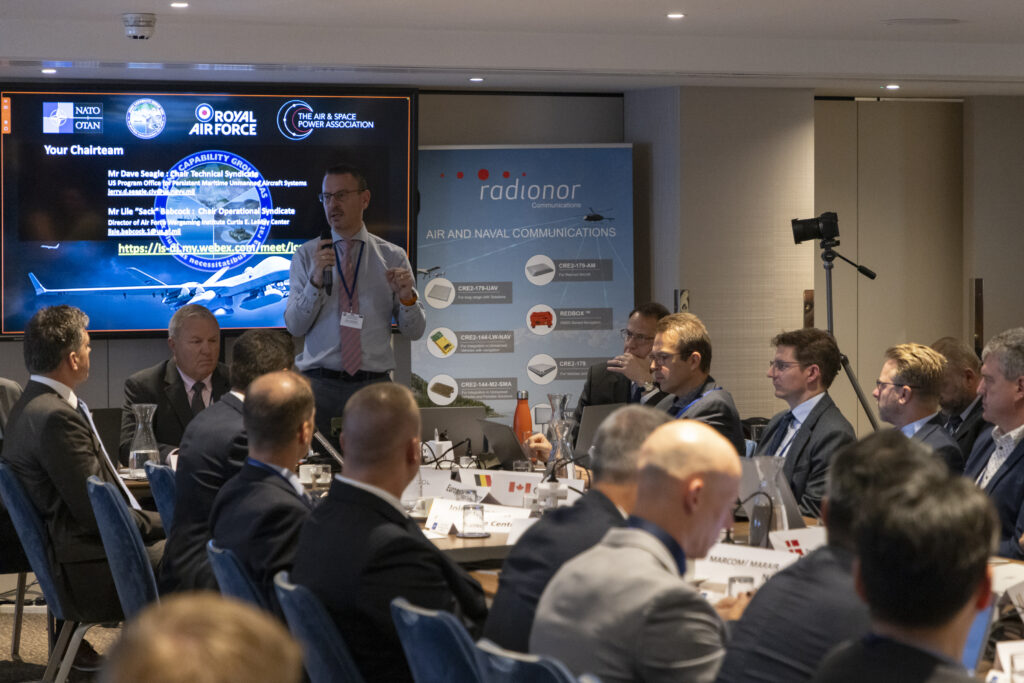
The JCGUAS is the source of technical and operational UAS information for NATO and addresses UAS issues, including acquisition, design, employment, capability demonstration, identifying common approaches to airspace management, complementary use among UAS categories, operator training and standards, and doctrine, including tactics/operational procedures.
The group also looks to enhance and facilitate interoperability, develop a common standard of data transmission and address the provision for complementary uses of different fleets, tactics, techniques, and procedures.
The overall aim of the group is to improve the operational effectiveness of NATO and coalition UAS capabilities by ensuring their availability, interoperability, utility, and operational integrity.


